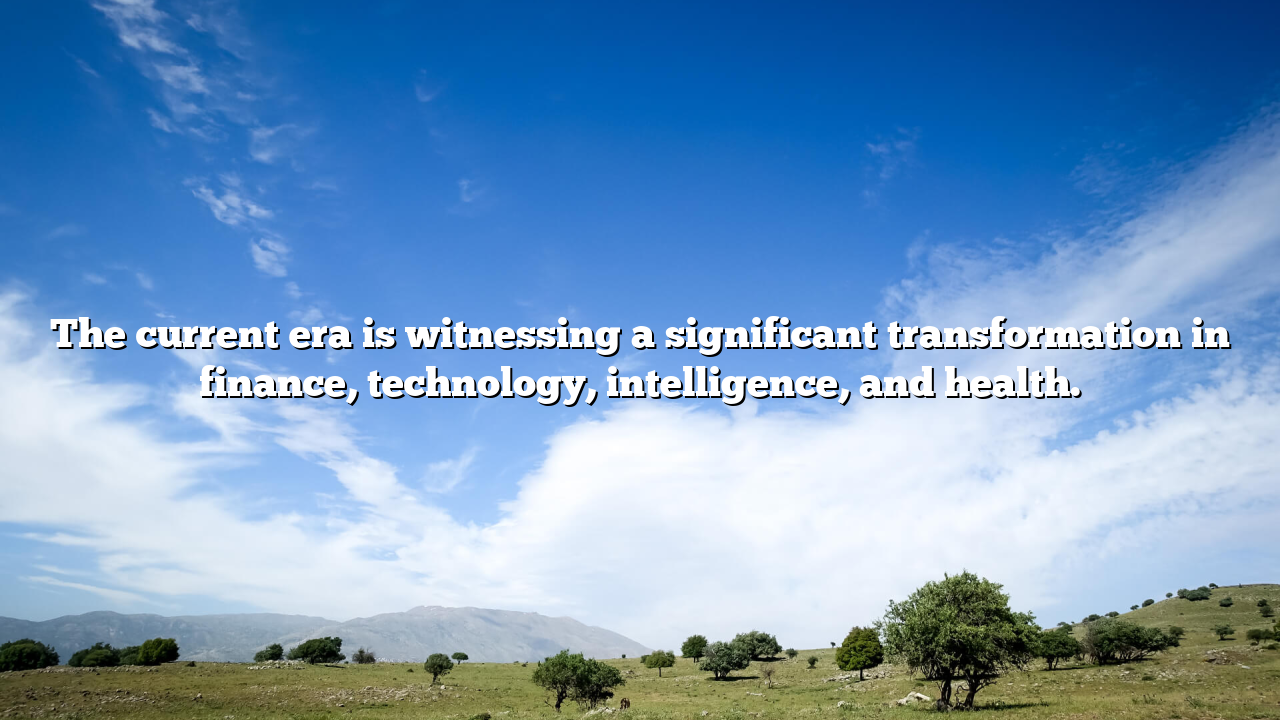These domains have a profound impact on our everyday lives, but they provide new opportunities for individuals, businesses, and governments to innovate, improve, and thrive. This article explores how these fields interact, overlap, and affect each other, ultimately creating a smarter, healthier, and more financially secure world.
—
1. Finance: The Backbone of Innovation
The world of finance has undergone a dramatic transformation with the advent of new technologies, artificial intelligence, and digital currencies. The traditional financial systems are undergoing disruption by innovations like cryptocurrency and blockchain. These innovations are altering the landscape of financial markets, investments, and digital exchanges.
The rise of blockchain for example, provides an immutable way to track transactions without the need for centralized intermediaries like banks. This cuts down on costs, enhancing transparency. Moreover, cryptocurrencies like Bitcoin and Ethereum provide individuals with potentially lucrative investment options and challenge traditional banking systems.
Another noteworthy trend in finance is the rise of intelligent algorithms and data analysis. These technologies enable banks, investment firms, and insurers to offer personalized services, automate processes, and detect fraudulent activities The role of AI in finance is becoming more pronounced, with automated decision-making processes shaping investment strategies. Financial advisors can now leverage AI tools to offer better predictions, personalized recommendations, and optimized solutions.
—
2. Technology: Shaping the Future
Technology, in an era defined by technological progress, is revolutionizing how we connect, work, and innovate. From smartphones and wearables to artificial intelligence and quantum computing, technology is revolutionizing every aspect of our lives.
In the realm of medicine and healthcare, innovations such as telemedicine and wearable health devices are improving patient care and access. These technological advancements empower patients monitor their health, access medical services remotely, and make informed health decisions.
The integration of AI in technology is also opening doors for new opportunities in automation, problem-solving, and communication. AI-powered systems are enhancing productivity in diverse sectors, including healthcare, manufacturing, and customer service. For instance, robotic surgery, diagnostic tools, and virtual assistants are shaping the future that streamline processes, reduce human error, and elevate service quality.
—
3. Intelligence: The Human Brain Meets Artificial Systems
Human and artificial intelligence plays a critical role in our ability to process information, think critically, and innovate. Human intelligence has been augmented through advancements in education, technology, and global connectivity. Meanwhile, artificial intelligence (AI) has introduced a new dimension to the concept of intelligence.
Artificial intelligence has advanced tremendously, with breakthroughs in areas like deep learning and neural networks. These systems mimic human cognition and allow us to solve complex problems faster. AI is already contributing to fields like healthcare, autonomous vehicles, and robotics, providing solutions that once seemed out of reach.
However, the fusion of natural intelligence and machine learning requires careful consideration of societal impact, security, and regulation. It is essential to develop AI in a way that safeguards human interests and rights.
—
4. Health: The Role of Technology and Intelligence in Wellness
Advances in healthcare have become more reliant on cutting-edge technology and intelligent systems. Wearables like fitness trackers, telehealth tools, smartwatches, and health monitoring apps are allowing individuals to track their health, manage conditions, and make better lifestyle choices. bos303 -powered tools is improving healthcare delivery, decision-making, and personalized care.
Virtual healthcare services have opened doors to healthcare services in rural regions and developing countries. This technology is making healthcare more equitable for people who would otherwise have limited access to care. Additionally, advancements in genomics, personalized medicine are allowing for more targeted treatments and preventative measures.
—
Conclusion
Ultimately, the fusion of these four transformative fields—finance, technology, intelligence, and health— is shaping a future that is smarter, healthier, and more financially inclusive. As these fields continue to evolve and converge Leveraging these innovations will be essential for individuals, businesses, and governments to stay competitive, relevant, and sustainable in the future.
The current era is witnessing a significant transformation in finance, technology, intelligence, and health.
